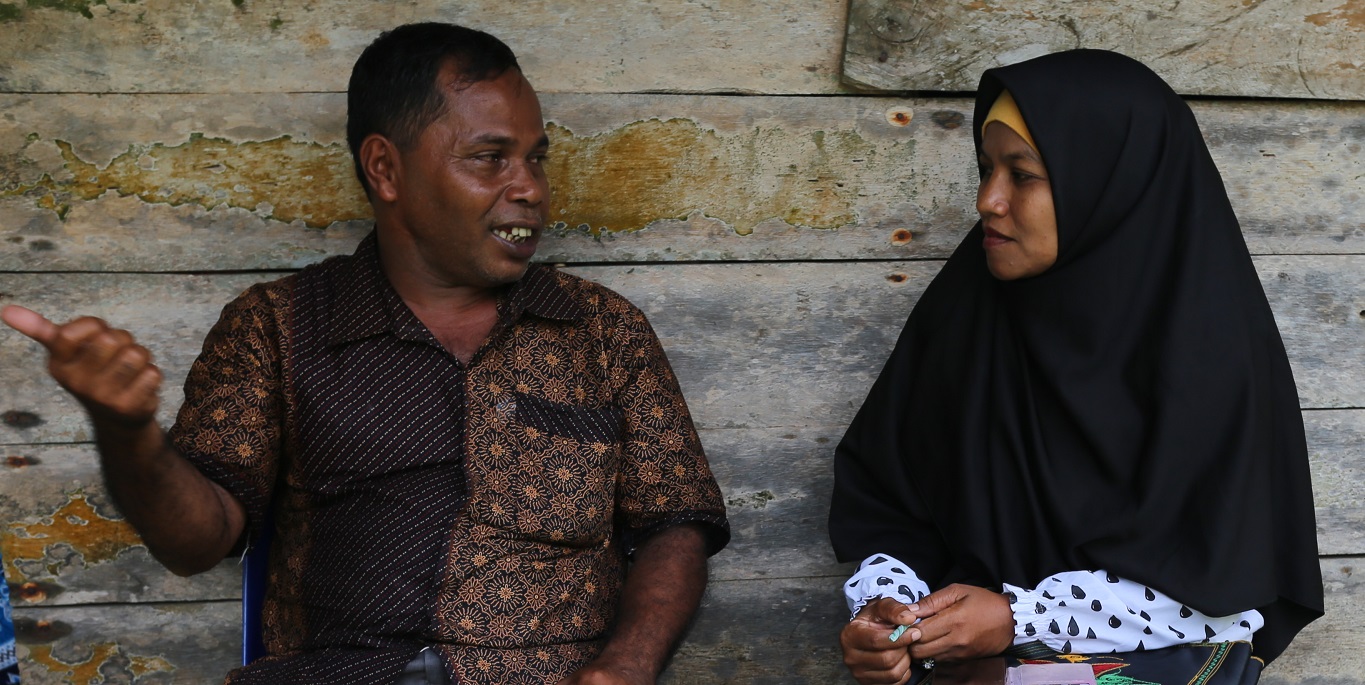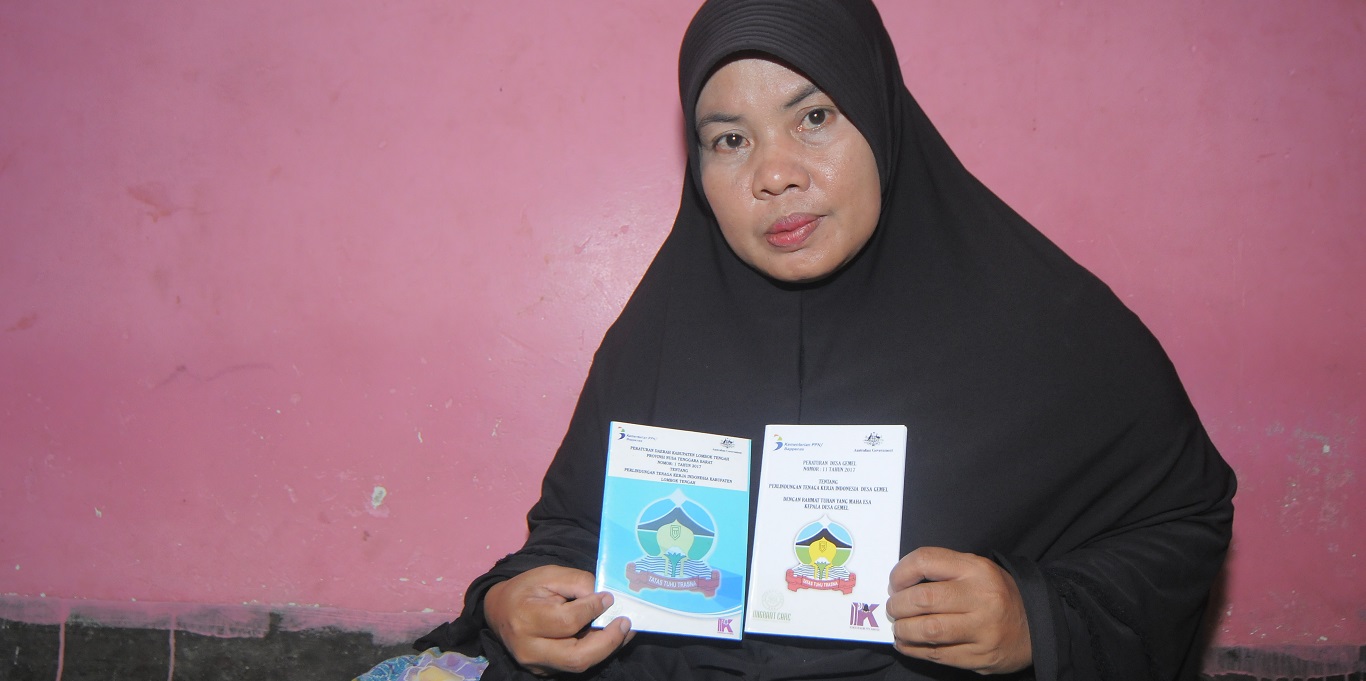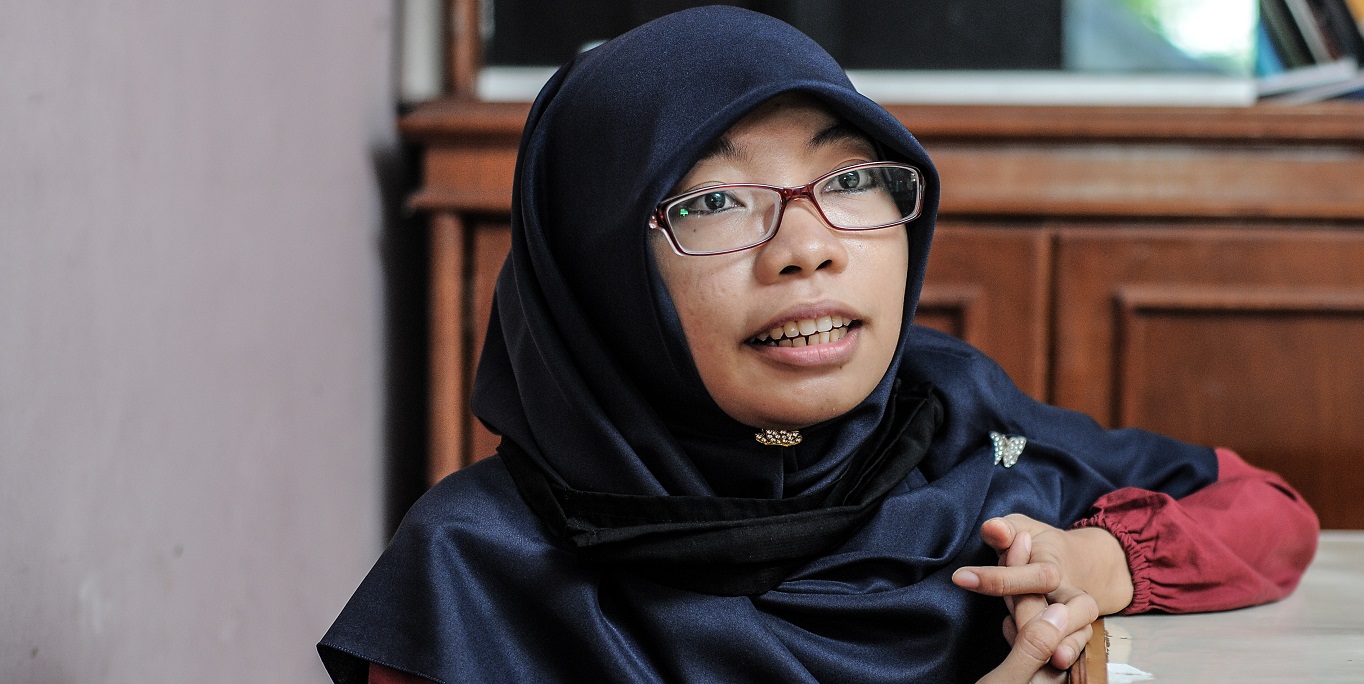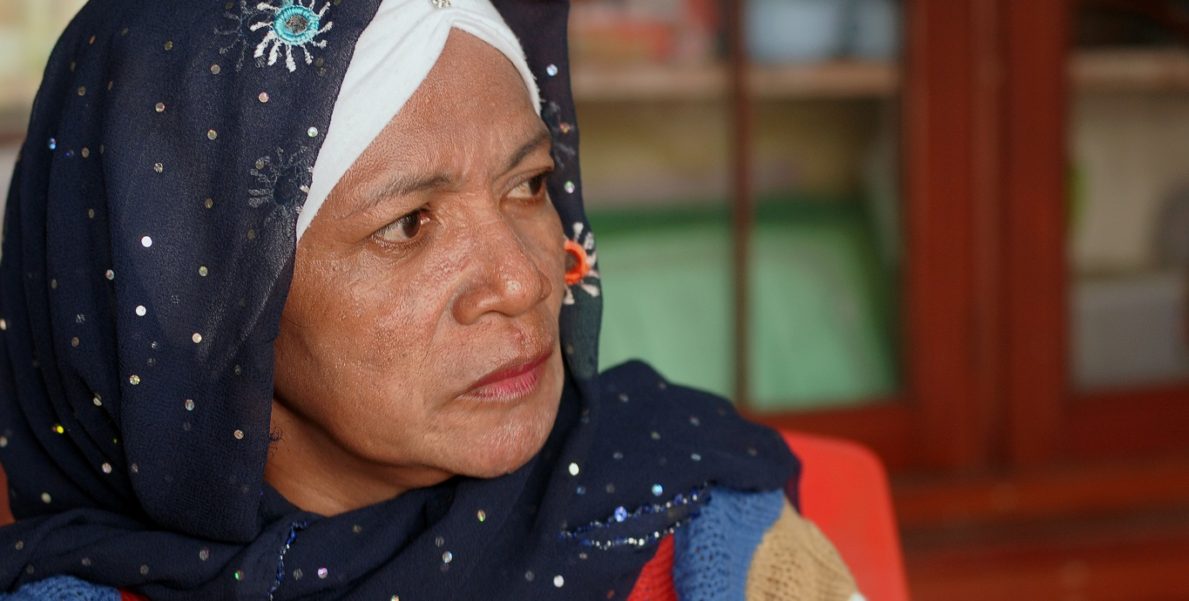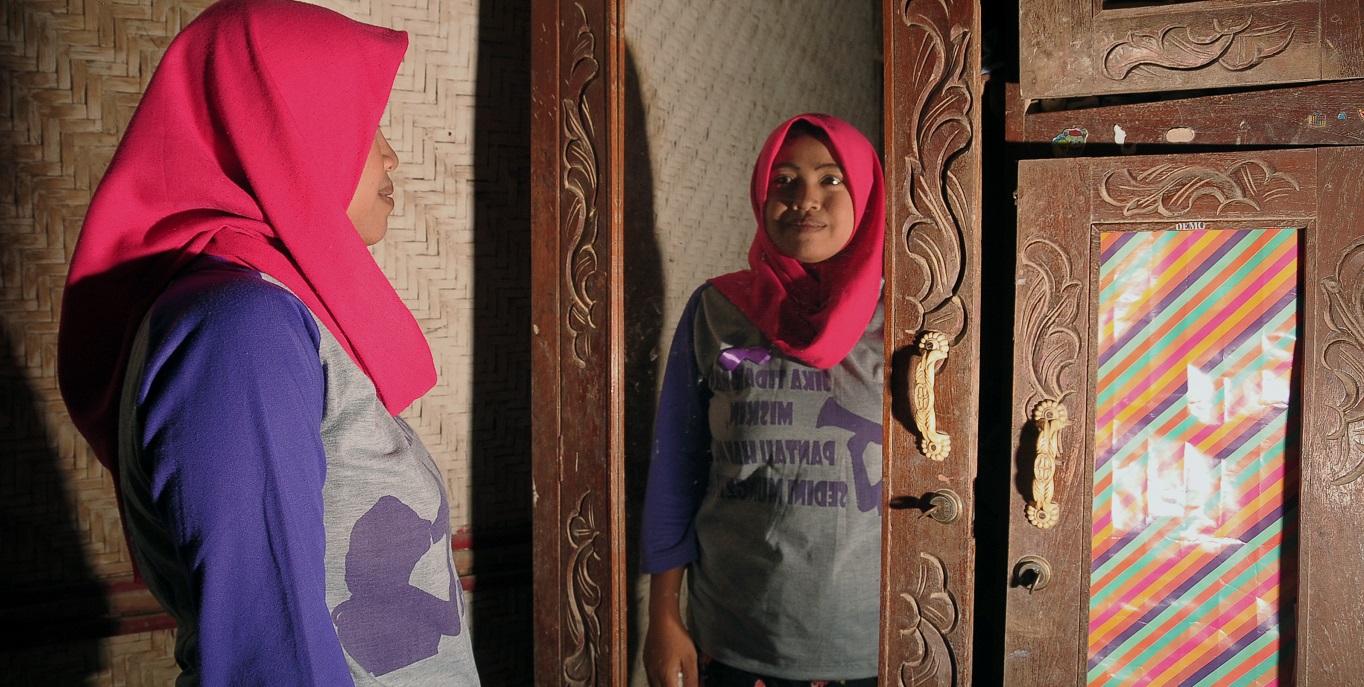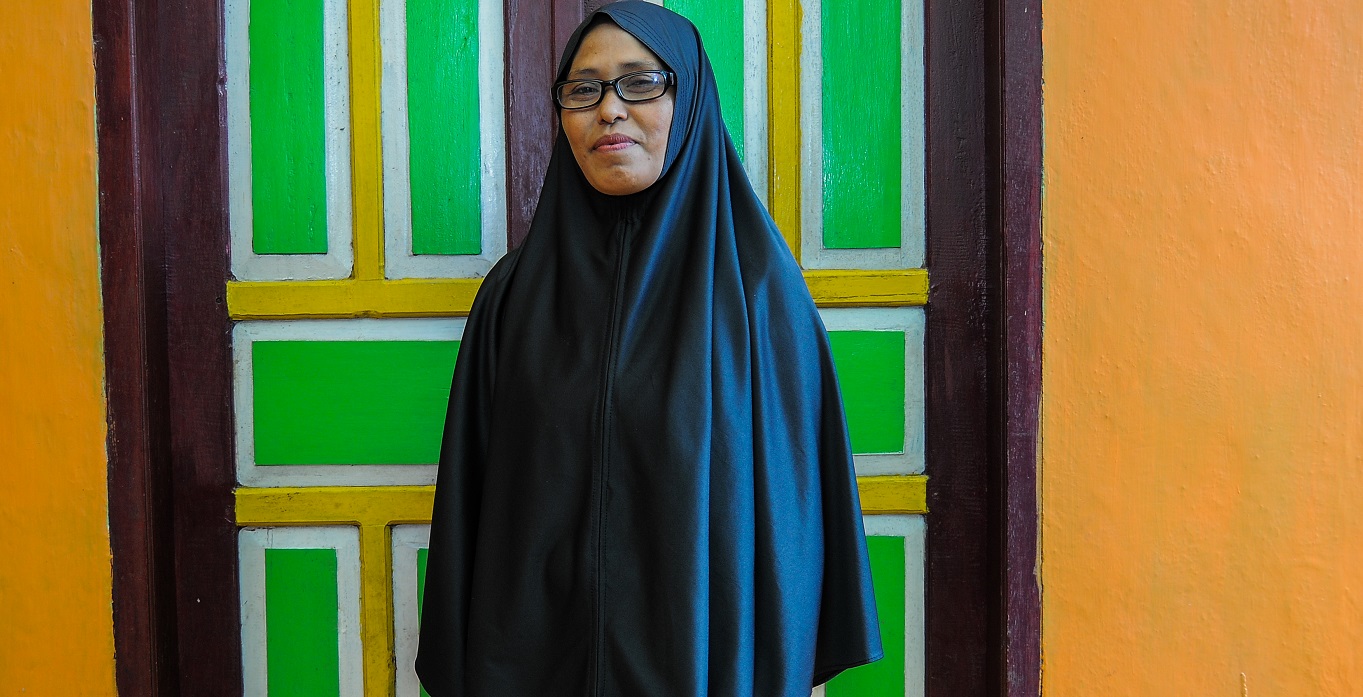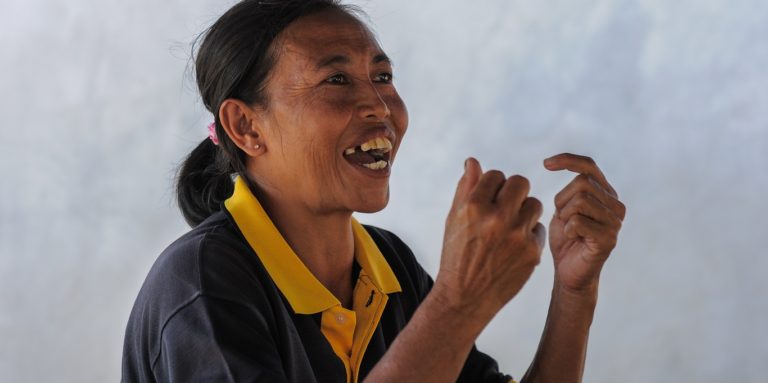Stories
Better Working Conditions: The Story of a Homeworker in Yogyakarta
30 December 2016Penulis: admin
Siti, who is 58 years old, lives in a village in Yogyakarta with her two adult children, a son in-law and two grandchildren. The house once belonged to Siti’s husband, but after he died in 2002, the house became hers.
After graduating from senior high school in the mid-70s, Siti held a variety of jobs. By the time she met her husband in the late-70s, she had already experienced a range of job situations, having worked part-time and full-time, and in formal and in informal settings, mostly in the garment industry.
She continued working full-time in a fashion house after she married her husband, however, in 1998, with their youngest child a teenager, she felt she needed to dedicate more time and attention to her family. She left her full-time job and began to take on piece work in her home. As a homeworker, she made button holes and sewed on buttons.
Siti borrowed money from a local cooperative to buy herself a sewing machine and materials. She connected with contacts recommended by her fellow homeworkers and those she had met while working at her full-time job.
Siti has now been making button holes and sewing on buttons for 16 years.
She generally enjoys her life as a homeworker–it allows her the freedom to spend time with family while working–but she is not fully satisfied with her work. She is paid IDR200 (AUD 1c) per button hole and IDR450 (AUD 40c) for making a button hole and putting on the button.
Each month, Siti earns about IDR1,000,000 (AUD $100). She must use her earnings to buy sewing materials and maintain her sewing machine, as well as pay her electrical bill.
Her children and her son-in-law work part-time at various jobs in the informal job sector.
While their combined family income is just enough to meet their basic needs. the family cannot afford to pay for social protection programs, such as the national health insurance plan (Jamkesmas) and the Social Security Management Agency (Badan Penyelenggara Jaminan Sosial/BPJS). Despite this, the government does not consider Siti and her family “poor” and they are therefore not eligible for free social and health care.
In 2008, Siti joined a number of home-based workers groups organised by Yasanti, a local NGO working in the provinces of DI.Yogyakarta and Central Java, one of MAMPU partners.
Siti has since become actively involved in group discussions and activities.
“I am happy to learn about new topics through this group, such as about gender, human rights and work quality,” she said.
Siti has used her newfound knowledge to improve her own quality control.
“Before, I used my fingers to measure the distance between two button holes or I just guessed. After learning about quality control, I understood that I must offer good quality products,” Siti stated. “Since then, I bought a measuring tape and a pencil; and I now measure the distance precisely in centimeters. The distance between any two holes I make is now exactly the same.”
Siti added that the middle people who buy her products have never once offered to increase her wages. In the 16 years of making button holes, the price she charges has only increased from IDR150 to IDR450—a raise of only AUD 1.4c per button hole.
She received this raise only because she asked for it.
Siti always supports her requests for a wage increase by pointing out that costs of materials or electricity have also risen. Siti learned this strategy by herself, long before she started attending the Yasanti group meetings.
She is happy to share her approach with other members of the group.
“I am glad that all of us homeworkers in the group can share each other’s experiences and support each other. That way, hopefully, all of us can enjoy better work conditions.”
– Siti is a homeworker with 16 years of experience making button holes and sewing onbuttons.



